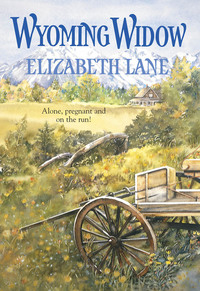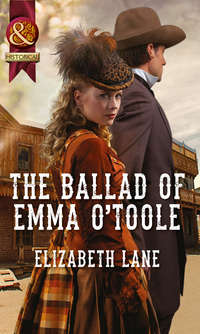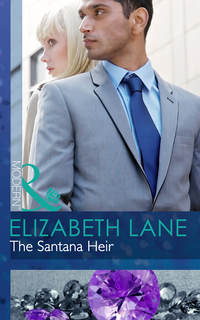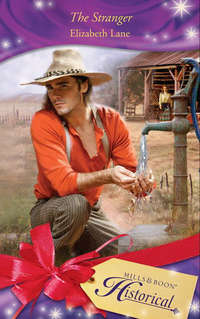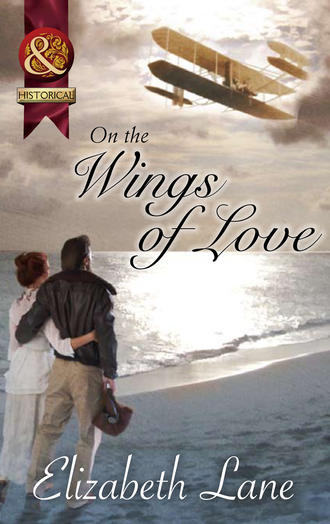
Полная версия
On the Wings of Love

Sooner or later Alexandra would likely be married.
She would be vulnerable, open to the same hurt and betrayal her mother had suffered. And she was afraid.
Not all men were like her father, Alex reassured herself.
Or like Rafe Garrick.
Only a short time ago she had come up from the beach and gone into his room. She had stood beside his bed, her eyes tracing the strong, stubborn lines of his face, the wave of dark chestnut hair that tumbled onto his forehead. A warm sense of possession had stolen over her. Hadn’t she saved him from the sea? It was almost as if part of his life belonged to her.
Then Rafe Garrick had awakened, banishing all her illusions. He was not the kind of man to be possessed by her or by anyone. He was arrogant. He was quarrelsome. For all she knew, he could be out of his mind. And she would be out of her own mind as well, Alex told herself, if she had anything more to do with him.
HIGH FLIGHT
Oh! I have slipped the surly bonds of Earth
And danced the skies on laughter-silvered wings;
Sunward I’ve climbed, and joined the tumbling mirth
Of sun-split clouds – and done a hundred things
You have not dreamed of – wheeled and soared and swung
High in the sunlit silence. Hov’ring there,
I’ve chased the shouting wind along, and flung
My eager craft through footless halls of air…
Up, up the long, delirious, burning blue
I’ve topped the wind-swept heights with easy grace
Where never lark, or even eagle flew –
And, while with silent, lifting mind I’ve trod
The high untrespassed sanctity of space,
Put out my hand and touched the face of God.
John Gillespie Magee, Jr.
Thanks to the family of John Gillespie Magee, Junior for permission to publish this poem
Elizabeth Lane has lived and travelled in many parts of the world, including Europe, Latin America and the Far East, but her heart remains in the American West, where she was born and raised. Her idea of heaven is hiking a mountain trail on a clear autumn day. She also enjoys music, animals and dancing. You can learn more about Elizabeth by visiting her website at www.elizabethlaneauthor.com
Previous novels by the same author:
ANGELS IN THE SNOW (part of Stay for Christmas anthology) HER DEAREST ENEMY THE STRANGER
On the Wings of Love
By
Elizabeth Lane

www.millsandboon.co.uk
Table of Contents
Cover Page
Excerpt
Epigraph
About the Author
Other Books By
Title Page
Dedication
Acknowledgements
Prologue
Chapter One
Chapter Two
Chapter Three
Chapter Four
Chapter Five
Chapter Six
Chapter Seven
Chapter Eight
Chapter Nine
Chapter Ten
Chapter Eleven
Chapter Twelve
Chapter Thirteen
Chapter Fourteen
Chapter Fifteen
Chapter Sixteen
Epilogue
Preview
Copyright
The characters in this story are fictional, except for one.
This book is dedicated to the memory of a
real-life heroine, Harriet Quimby.
Acknowledgements:
I’m indebted to the authors who provided me with the
research needed to write this book. Most notable among
my sources were The Pioneers of Flight by Phil Scott (Princeton University Press, 1999), A Picture History of Early Aviation, 1903-1913 by Joshua Stoff (Dover Publications, 1996), Long Island, by Bernie Bookbinder (Harry N. Abrams, Inc., 1998), and Nassau County Long Island in Early Photographs by Bette S. Weidman and Linda B. Martin (Dover Publications, Inc. 1981).
Special thanks go to children’s author Linda Granfield,
who graciously helped with copyright information for
the poem “High Flight.” Her fine book, High Flight, tells the story of the poem and the young pilot who died soon after writing it.
Finally, I’d like to thank my editor, Demetria Lucas,
for her patience and wisdom in helping me transform
an unwieldy epic into a love story.
Prologue
Long Island, New York
June 16, 1911
The wind struck without warning out of a calm summer sky. Sharp gusts buffeted the wings of the fragile biplane, causing the craft to pitch and heel like a stricken dragonfly.
Rafe Garrick cursed as he fought to stabilize his lurching aeroplane. His right hand clutched the lever that raised and lowered the ailerons. His feet shifted frantically on the rudder bar as he wrestled for control of his precious machine.
Blast! He’d checked the weather reports carefully before taking off from the aerodrome at Hempstead Plains. This was to be the last test of his engine prior to next week’s big air meet—he was counting on that event to make all the difference. The sky had been flawless, the day pleasantly warm. There’d been no sign of wind. Not this kind of devil wind, at least.
Two hundred feet below, the waters of Long Island Sound rose and curled. White-winged sailboats rode the cresting waves off Matinecock Point, their wakes trailing foam. Rafe would have to get the aeroplane down at once. But for that he needed solid ground beneath the wheels. The field at Hempstead was too far to fly in this accursed wind. He would have no choice except to head straight for the nearest landfall and pray for a long, smooth stretch of beach.
On his right, the north shore of Long Island extended along the horizon. He should have known better than to fly so far out over water. But the sky had been a deep crystalline blue, the summer breeze a perfumed siren, luring him onward and upward. Drunk on sunlight, he’d surrendered to the call. Now it was time to pay.
Easing down on the rudder bar he banked the craft sharply to the right and swung it in a wide arc toward the land. Wind clawed at the canvas-covered wings, threatening to rip the varnished fabric from its light-weight wooden frame. The engine coughed, sputtered, died for a breathless instant, then roared to life as Rafe jerked the throttle full out.
Blast! What was wrong with the damned thing? Was it the wind or some vital weakness his inspection had missed?
He had no more time to ponder the question as another gust struck from behind, catching the rear elevator and sending the nose of the aeroplane plummeting toward the waves. Rafe wrenched the stick backward, launching the craft into a steep climb. Easy…easy now, he warned himself as he leveled out. The beach was only a couple of miles. If he kept a cool head he’d be fine.
He’d be bloody fine…
He was whistling “Annie Laurie” between his teeth when the engine started to sputter again.
Chapter One
The champagne had gone flat. Alexandra Bromley took a sip, grimaced and sighed. She dreaded these lavish summer parties her parents gave for their wealthy friends. She hated the pretense, the show, the banality of small talk. And she resented that she had to be here when she’d rather be galloping her horse along the beach or sneaking out to test the speed limits of her father’s new Pierce-Arrow on Glen Cove Road.
As she stood on the terrace, her face fixed in a rigid smile, she felt the appraising eyes of people who passed. Alex squirmed inwardly, even though she was long accustomed to stares. She was tall to the point of stateliness. Her face, framed by clouds of gold-brown hair, was the sort that could have graced one of Charles Dana Gibson’s famous magazine covers. But she had one glaring flaw. Hours of walking on the beach and riding in the sun without a hat had burnished her skin to a most unfashionable brown. She was as tawny as the Indians whose lodges had stood here on the north shore of Long Island before Europeans came.
After soaking her in lemons to no avail, Alex’s mother had come up with a gown calculated to hide the defect. It was of ruffled lavender voile, with long sleeves and a collar of Cluny lace that came all the way up to Alex’s chin. An elaborate tulle hat sat atop her upswept hair like a huge dollop of whipped cream.
Never one to pay much mind to fashion, Alex hadn’t argued with her mother’s choice. It was not until minutes before the party, after she’d been bathed, perfumed, combed, laced, pinned and dressed, that she’d stood in front of the big hall mirror and faced the truth. Lavender was definitely not her color. And the style of the dress was much too old for her. She looked like a gangly child playing dress-up in her grandmother’s clothes.
For a moment she held the champagne glass to her mouth. Her tongue slid thoughtfully along the bladethin crystal rim as she surveyed the party from the terrace of her parents’ twenty-eight-room Edwardian house. Long tables, spread with linen, had been set up on the vast emerald lawn. Men in white summer gabardines and women in butterfly hues of organdy and silk georgette flocked around the tables, helping themselves to Smith Island oysters, fresh clams and Lobster Newberg, wild-rice croquettes and dainty Swiss crackers spread with Astrakhan caviar and pâté de foie gras. An elaborate glass dolphin spouted pink champagne; a matching one on another table flowed red with rum-laced Roman punch. In the distance, beyond everything, the waters of Long Island Sound glittered in the afternoon sunlight.
Idly she watched her parents’ guests stuffing themselves like pedigreed cattle milling around the feeding trough. The men were big, bellowing bulls flaunting their money and power. Their wives were placid heifers with ropes of pearls around their necks.
Were these women happy? Did they care about anything beyond money, status and the broods of children they produced? Heaven forbid, there had to be more to life than that! In this day and age, females were doing things that Alex had only dreamed of—climbing mountains, working as journalists, marching in the streets, exploring the world! Why couldn’t she be one of those women? Why did she have to be a prisoner of her family’s expectations?
With ruthless detachment, she appraised her own situation. At twenty, she was of an age when young women were expected to marry. The fact that she was her father’s only child and heir to the fortune he’d made in the firearms business made this an imperative. That’s why she was being trotted out on display this summer, for sale to the most promising bidder.
Maybe it was time to pack a suitcase and run away.
Alex handed the champagne glass to a passing servant. At least Mama would have some things to be pleased about. For a summer party the turnout wasn’t bad, and the guests represented some of New York’s better families. Papa, on the other hand, was growing impatient with these soirees. All Buck Bromley wanted was to see his daughter married to a man he deemed suitable.
Alex picked out her father’s hulking shoulders among the crowd. She knew what he wanted. He wanted the son he never had—another Buck Bromley, with money and connections, who’d take her in hand and sire a pack of bullheaded grandsons to take over the company one day. He wanted to forge her life like one of his custom-made hunting rifles. Well, she had news for him. She wanted a life of her own.
“Alex, for heaven’s sake!” It was her mother, approaching with swift, nervous footsteps. Maude Bromley was a thin, plain woman, as pale as wallpaper. Her hands fluttered like dry leaves as she spoke. “How can you stand there when you should be mingling with our guests? This is your party, too, you know.”
She took her daughter’s hand and led her down off the terrace onto the lawn. There the guests, plates teetering with food, were seating themselves around umbrella-shaded tables.
“My dear, I’m so delighted to see you!” Alex found herself smothered against the ample bosom of a woman whose name eluded her. Most likely she was a Whitney or a Vanderbilt, or a member of some other clan whose founders had come to the Colonies and made their fortunes early. Most of the families who lived on Long Island’s Gold Coast were Old Money, part of the American aristocracy.
Buck Bromley, on the other hand, had married into a modest gunsmithing business and expanded it himself. Burnsides and Bromley was now the largest firearms manufacturer on the East Coast. Buck was wealthier than some of the Old Guard people. Still, in terms of social standing, the Bromleys were nouveau riches, practically bourgeois.
Alex extricated herself from the woman’s arms. Her mother had darted back to the kitchen, leaving her on her own. She sighed, feeling adrift. Most of the party guests were friends and neighbors of her parents’ generation or business associates of her father’s. Her own friends had married and moved away or gone abroad for the summer. Alex had begged to go abroad herself, but her father had insisted on keeping her at home. He didn’t want to risk her eloping with some fortune-hunting French fop, he’d said, only half joking.
Alex had never felt comfortable in crowds. She was walking faster now, down the slope of the lawn. People pressed around her, sweating, talking, eating. She fought the urge to break loose, to run to the sea like a lemming and plunge into the cold white surf.
“Alex!” She stiffened at the sound of her father’s voice. Buck Bromley turned away from the two men he’d been talking to. “Come here, girl,” he boomed. “I want you to meet my friends!”
Alex turned slowly, her face assuming a mask of polite cordiality. All he wanted was to show her off, to whip her out of the chute and run her around the ring like a prize heifer. That’s all she ever was to him anyway—breeding stock!
Buck Bromley grinned. He was a powerful man, bull-necked, barrel-chested and hard as hickory. His unruly brown-gold hair matched his daughter’s, but his features were blunt where hers were fine. His blue eyes gleamed like the flame of a gas jet, where hers were almost purple and as cool as the distant ocean.
“Come here, girl!” He repeated the order with a jerk of his head. He was not a handsome man, but his jut-jawed face exuded vitality. Men admired and followed him. Women…Alex preferred not to think about that now.
“Yes, Papa,” she said mechanically.
“These are colleagues of mine.” Buck indicated the men who stood beside him. “I invited them here for two reasons. First, I wanted them to see that I wasn’t just bragging about the beauty I’d fathered. And second, I wanted you to meet them.”
Alex glanced at the two men. They appeared to be in their forties, with thickening waists and thinning hair. The younger man was blond and vain-looking with a waxed moustache that curled upward at the tips. The other man had a florid face framed by bushy sideburns. Both were turned out in a manner that exuded wealth and arrogance.
Their names and accomplishments slid past Alex as each, in turn, took her hand. The blond man had evidently made a fortune in shipping and had just returned from an African safari. The one with the sideburns owned the biggest sporting goods business in the state of New York.
“Joe Templeton,” he introduced himself, squeezing her hand till it hurt. “Buck told me he had a pretty daughter, but I hadn’t figured on meeting a goddess!”
“Thank you. It’s always an honor to meet my father’s friends,” Alex lied in a formal voice. “Now, if you’ll excuse me, I need to get back to my other guests. Please enjoy yourselves, gentlemen.”
She turned to leave, but her father caught her arm. “Walk with me a little,” he said. “There’s something I’ve got to say, and I want you to hear it.”
“Can’t it wait?” Alex asked, though she knew better. Buck Bromley never waited for anything.
“Come on,” he said, gripping her elbow and propelling her away from the party, in the direction of the beach. He didn’t speak again until they were out of earshot.
“Well, what did you think of them?” he demanded, stopping beside a blossoming honeysuckle bush.
“I assume they’re single.”
“Single and damned well-off, both of them. You could do worse, girl.”
“Really, Papa, they’re old and stodgy. What makes you think I’d like them?”
Buck Bromley shoved his hands into his pockets and stared toward the dunes that edged the whitecapped water. “Because they know what they want and they’re not afraid to go after it. They know how to take charge. They’re real men!”
Alex felt a flash of anger. For a moment she struggled to hold it in check. She tried to shift her concentration to the sights and sounds of the party, to the kaleidoscopic movement of forms and colors, the tinkle of crystal and silver, the muted cacophony of voices, and something else—a faint, mechanical, droning sound, coming from nowhere, fitting nothing, making no sense at all.
“Papa,” she snapped, “you have your own ideas of what a man ought to be. I have mine, too, and they’re not the same! A real man is somebody who cares about other people, somebody who’s gentle and loving and not afraid to show his feelings!”
“Damn it, girl!” Buck rumbled behind clenched teeth. “Don’t you ever think of anybody except yourself? Look at me! I built Burnsides and Bromley from a two-bit gunsmithing shop to one of the biggest operations in the country. It took blood, guts and sweat. For years I worked sixty, seventy, eighty hours a week. But I wasn’t doing it just for me. I was doing it for the sons and grandsons who’d come after me, who’d take over the company and keep it going!”
He took a deep breath. “Even after you were born, and we found out your mama couldn’t have any more babies, I didn’t give up hope. I knew you’d get married one day—and I counted on it being to a man who’d run the company with me and give me a brood of strapping grandsons to take over when I was gone. Now, damn it, girl, it’s time for you to choose the right kind of husband and give me some peace of mind!”
Alex fought for self-control. The droning sound was louder now, like a throbbing inside her head. “Papa, we’ve been through all this before,” she said icily. “I’m not ready to get married. There are other things I want to do.”
Buck’s face was dark red. Alex could see the subtle twitch of a vein in his left temple, the herald of an explosion. She was dimly aware that the droning sound had stopped. The sudden silence was oddly frightening.
“Please, Papa, not here!” she whispered.
“Listen, girl,” he muttered through his teeth. “Your selfishness is ruining—”
He was interrupted by a shriek from one of the female guests. “That aeroplane! It’s going to crash!”
The party was forgotten as everyone turned and stared upward. There was the aeroplane, less than a hundred feet above the beach, as fragile as a mosquito against the sky.
Alex had seen aeroplanes before, though not many. This was a biplane, with a wide double wing, and it was clearly in trouble. She could see the frantic motions of the pilot as he tried to restart the engine. She heard the motor cough once, then die again into terrifying silence as the plane started a downward spiral.
“He’s got one chance,” a man behind Alex said. “If he can level it out, he might be able to glide in. Otherwise—”
“Good God!” exclaimed Buck. “He’s trying to pull out of it! What a fighter! Come on, man!”
A cry lodged in Alex’s throat. Time slowed to a nightmarish crawl as she watched the spiraling plane and the pilot struggling with the controls. For an instant it appeared that he’d be able to right the plane for a landing. But for that he needed power, and his engine was dead.
He was still pulling on the stick when the fragile craft angled in toward the beach and vanished behind the dunes.
The watchers stood stunned, unable to believe what they’d seen. But Alex couldn’t stand still. She felt herself breaking into a run. Her shoes flew off as she raced down the long stretch of lawn toward the dunes. The wind tore away her tulle hat and plucked at the pins in her hair. Her skirt caught on a low bramble, ripping the ruffles as she heedlessly ran on.
Others were running, too, now, but Alex was ahead of them all. She was the first to reach the sand, the first to scramble up the landward slope of the dune and the first to sight the wrecked aeroplane.
The aeroplane had crashed nose-down near the water’s edge. Its double wings were twisted, its tail askew. The front end was partly buried in the sand. Waves eddied around it as the tide moved onto the beach.
Where was the pilot? Alex spotted him as she tore down the side of the dune. He was hanging out of the plane, his legs caught in the wreckage, his head dangling in the water.
Fearing he would drown if the crash hadn’t killed him, Alex plunged into the surf. The waves were swirling around her waist by the time she reached the aeroplane. A ripple washed over the pilot’s goggled face. Then Alex had her arms around him. She lifted him, feeling the heaviness of his upper body. He was a big man, rock solid. She cradled his head against her breasts while she waited for help.
“Is he alive?” Buck was beside her in the water now, his strong arms supporting the pilot’s shoulders.
“I don’t know.” Alex ran a finger along the man’s neck, searching for a pulse. He was bleeding from a gash on his temple. The blood made wet red streaks down the front of her gown. “I can’t feel anything,” she said, fumbling with the leather chinstrap.
By now, other men had reached the aeroplane and were trying to free the pilot’s legs. Alex held his head steady with one hand while the other hand tugged at the stubborn buckle.
Finally the strap came free. Alex pulled away the helmet. The goggles came with it. Underneath was a square-jawed face—a face that was young, yet somehow not young at all. The hair, plastered damply against the head, was dark reddish-brown. The nose was crooked, as if it had once been broken. The eyes were closed.
She pressed his neck where the strap had covered it and caught the faint throb of a pulse. “He’s alive!” she exclaimed, weak with relief. “Hurry! Get him out!”
At the sound of her voice the pilot’s closed eyelids twitched. The wet lashes fluttered upward. Alex found herself staring into a pair of riveting, green-flecked eyes.
He blinked, trying to focus on her face. “Don’t worry,” she said, feeling the warm pressure of his cheek against her breast. “You’re safe. They’re just trying to get your legs loose.”
As she spoke, the rescuers suddenly pulled the man’s legs free of the wreck. With a sharp moan of pain, he lapsed back into unconsciousness. Alex glanced over her shoulder and saw that one of his high-topped leather boots was grotesquely twisted. His leg, she realized, was badly broken.
“Let’s get him to the house!” she shouted. “Careful—support that leg!”
“We’ll take him,” Buck said. “Alex, you run on ahead. Get somebody to call a doctor.”
“No, I’ve got him.” She cradled the unconscious head, refusing to let go. She had found him. She had reached him first and saved him. It was as if, somehow, the young pilot had become hers.


